Saab has entered into framework agreements with the NATO Support and Procurement Agency (NSPA) for the Carl-Gustaf M4 weapon system and the AT4 anti-armour weapon.
Call-off orders have been placed for Carl-Gustaf ammunition, with deliveries scheduled for 2023-2025, and for the AT4, with deliveries planned for 2023-2024.
The AT4 framework agreement will remain valid until 2026, while the Carl-Gustaf agreement, which includes ammunition, will be valid until 2027.
Görgen Johansson, head of Saab’s business area Dynamics, expressed pride in the company’s combat solutions and their ability to make a difference for customers. He added that these framework agreements would strengthen Saab’s relations with NATO and streamline the order process for Carl-Gustaf and AT4 for its member nations.
“We are proud that our combat solutions are making a difference for our customers. These framework agreements will further strengthen our relations with NATO and facilitate the order process for Carl-Gustaf and AT4 for its members,” says Görgen Johansson, head of Saab’s business area Dynamics.
Several NATO members, including the United States, Canada, and the United Kingdom, already use Saab’s ground combat solutions, you can read more about this here.




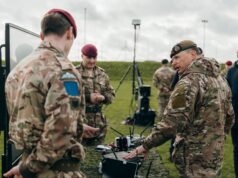
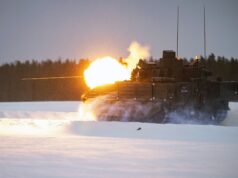
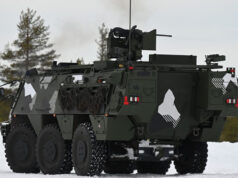

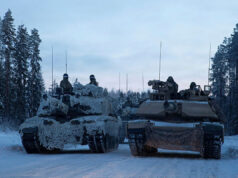

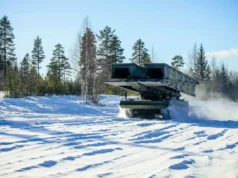


Lots of re-stocking to do it seems!
“The weapon has been a popular one for the UK to transfer to Ukraine as part of the defensive effort against Russia’s illegal invasion. Since February, Britain has supplied 10,000 anti-tank weapons to Kyiv, per a government report.
NLAW deliveries under the latest order are scheduled to run between 2024-2026 with assembly taking place at Thales’ Belfast, Northern Ireland, production facility,”
LINK
Hopefully Russia will run out of combat personnel and armoured vehicles long before we run out of ATGW to supply too Ukraine. Yes a huge re-stock with a sense of urgency is required.
No chance, I understand it’s getting the Kalinin K-7 out of museums to beef up its aerial bombardment. Could be a game changer. 😈
Why don’t you switch your PC off and get yourself to the pub Nigel. It is a Bank Holiday after all. Or maybe you have to Google search what a pub is. 🍻
The scolded child in the room appears to be back.
Will he ever grow up?
Ah he’s back from the pub, he’s feeling brave after a few pints. Go on Nigel my son! Show us you are a human being after all. 😀
What is “Call-off orders”?
I don’t know. I honestly don’t have a clue what any of the statement meant.
A framework agreed with nato procurement agency for call off order???
Am I being dense? Don’t understand the lingo?
Is nato going to stock these for distribution as needed?
I would think they have placed an order for a total number of units to be called off as required over a set time period
The framework is basically a contract that is put in place so orders are pre-approved at a certain price, but not necessarily made at that time. Orders subsequently made against that contract are ‘call off orders’.
It is American for ‘placing an order.’
I’ve never heard the term in 60 years watching the military.
It’s just standard commercial framework terminology. It’s not placing an order, it’s pre-approving orders up to a certain amount and should anyone need to make the order they don’t need a new contract.
It’s a way of contracting for big orders for stuf that may be used/needed over an extended period of time. Probably just modern phrasing for stuff that already existed. But, in summary:
A framework agreement is a high level “contract” to provide goods and/or services, over a set period of time. In this case, Saab has entered into a framework agreement to provide CGs and AT-4s. These are unlikely to be required all at once, and more than expected may be required. So normally a framework agreement will have a certain margin on the quantities inolved. As with any acquisition involving large sums of money, there are extended negotiations regarding Ts&Cs, and the tender process has to be well managed, transparent, potentially subject to protest from losing parties, etc.
Once a framework agreement is in place, a call-off contract can be issued to purchase some of the goods services covered by the agreement. Additional call-offs can be issued on an as-needed basis, without having to go through the complication of further tenders, contract terms negotiations, etc. and without the customer having to store the entire inventory from the initial get-go (and also meaning that the manufacturer doesn’t have to deliver them all in one go, either).
As an addition in this case, it means that individual member states can place their own call-off orders via the NATO framework agreement, rather than individually all negotiate (potentially less favourable) prices and terms with Saab. In exchange, Saab knows that everyone in Europe and beyond will be coming to them for light AT weapons for the foreseeable.
Thanks Joe, the fog is slowly clearing.
For a country so small the Swedes make a lot of top tier military kit.
I think you mean by population rather than land as Sweden is nearly twice the size of the UK but with a population around 1/6th that of the UK 🙂 But I agree with you. Not only militarily but with cars/trucks/aircraft, furniture and oh, pop music. RIP Lasse Wellandar
Jaysus wept… The first AT weapon I ever fired, back in 1982.